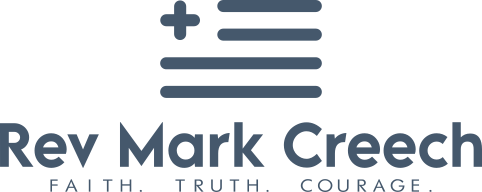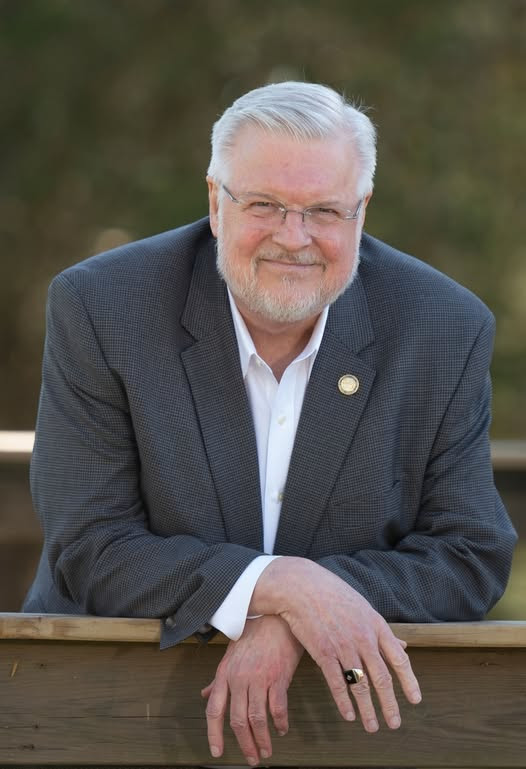Return America | By Dr. Mark Creech, Legislative Liaison | February 18, 2025
INTRODUCTION. The political and spiritual stakes are high as the North Carolina Legislature convenes for its opening days. For conservative evangelicals, this session will present challenges and opportunities to advocate for policies that uphold biblical values and the founding principles of our great nation.
I am writing this report to you today against the backdrop of President’s Day—a holiday that not only honors our nation’s leaders but also serves as a reminder of America’s Christian heritage. Organizations like Return America are calling for a renewed commitment to godly leadership and moral governance. Just as many past presidents recognized divine providence in shaping the nation, much of our nation believes a return to righteousness is essential for securing America’s future.
The 2025-26 legislative biennium will test whether lawmakers are willing to uphold the values that have long defined North Carolina. The 2025 session, which is called the Long Session because it typically runs from January to July (and sometimes longer), calls for every patriotic Christian to ensure that faith, family, and freedom remain at the heart of our state’s policies.
At this point, lawmakers haven’t filed many bills. However, legislative activity is expected to increase considerably in the coming days. Here’s what we can expect. Buckle your seat belt because we could be in for a bumpy ride. There will be suitable measures for us to get behind and inadequate measures to oppose zealously.
Abortion and the Sanctity of Human Life
One great biblical principle to which Return America is firmly committed is the sanctity of human life and the protection of the unborn.
I believe we can expect to see legislation that supports abortion pill reversal. Abortion pill reversal (APR) is a medical intervention designed to save a pregnancy after a woman has taken the first drug in a medication abortion, mifepristone (RU-486). Mifepristone works by blocking progesterone, a hormone essential for sustaining pregnancy. APR involves administering high doses of progesterone to counteract the effects of mifepristone and support the continuation of the pregnancy. This treatment is most effective when started as soon as possible, ideally within 24 to 72 hours after taking mifepristone and before the second abortion drug, misoprostol, is taken. Many women who have undergone APR have successfully saved their pregnancies, and this option provides hope for those who regret their initial decision. The legislation will likely require this information to be provided to a woman as a part of informed consent.
Second, in North Carolina, individuals under 18 years old who are unmarried and unemancipated are required to obtain written consent from a parent, legal guardian, or custodian to undergo an abortion. If obtaining such consent is not possible or the minor chooses not to seek it, they can petition the court for a judicial waiver. This confidential process allows a judge to assess the minor’s maturity and ability to make an informed decision regarding the abortion, potentially granting permission without parental involvement.
Although in the last legislative biennium a law (The Parent’s Bill of Rights) was passed that clarified parents’ right to know when their children are considering such life-altering decisions, some zealous pro-lifers have discovered that laws dating back to the 1970s still provide loopholes for minors to make such monumental decisions without parental input or consent. Many pro-lifers believe these laws need to be addressed as soon as possible.
Third, IVF, or in vitro fertilization, is a process where human life begins outside the womb in a laboratory. While it has helped many couples struggling with infertility, it raises serious concerns from a pro-life perspective because it often results in the creation of multiple embryos, many of which are either discarded, frozen indefinitely, or used for research. This means innocent human lives—fully formed at the embryonic stage—are often lost or treated as disposable. Additionally, some IVF procedures involve selective reduction, where multiple embryos are implanted in the womb, and some are then aborted to improve the chances of a successful pregnancy.
Pro-life advocates believe that human life is sacred from the moment of conception, whether that conception happens naturally or through medical assistance. Because of this, many rightly question the morality of a process that creates more embryos than will be given the chance to live. Recent legal debates have also emerged regarding whether embryos should be legally protected as human beings, further intensifying the controversy around IVF.
We could see legislation introduced this year that will continue this critical debate concerning the unborn.
A Detransition Bill of Rights
Other legislation that might be introduced this year would be “A Detransition Bill of Rights,” a proposal designed to support individuals who have undergone gender transition procedures and later choose to detransition. Organizations like Do No Harm have spearheaded such legislation.
This initiative, if passed, would ensure that those who regret their transition receive proper medical care, legal recognition, and the ability to hold medical professionals accountable if they were inadequately informed or pressured into transitioning. Key provisions would include informed consent, requiring that individuals, particularly minors, receive full disclosure of the risks and long-term effects of gender transition procedures before undergoing treatment. It also mandates that insurance policies cover detransition-related care and guarantees the right to legal restoration, allowing individuals to revert to their original name and sex designation on official documents.
Additionally, the bill might provide legal recourse for those who believe they were misled or harmed by the medical community, granting them up to 25 years after adulthood to take action against practitioners.
As concerns grow over the increasing number of individuals, particularly young people, who regret transitioning, this legislation is gaining traction in various states. Supporters argue it is necessary to safeguard vulnerable individuals, particularly minors, from potentially irreversible medical interventions without full awareness of their consequences.
Gambling and Its Negative Social Impact
For much of its history, North Carolina stood as a stronghold against gambling, recognizing its destructive impact on individuals, families, and communities. Rooted in deep religious and conservative values, the state resisted gambling’s false promises of easy money, understanding that it often leads to addiction, financial ruin, and social decay. However, this moral stance began to erode in 2005 with the establishment of the North Carolina Education Lottery, a decision made despite warnings from Christian leaders about its potential harm. What was once an exception has now become the gateway for a relentless expansion of gambling across the state.
Since the opening of Harrah’s Cherokee Casino in 1994, tribal gaming has grown into a full-scale industry, offering addictive gambling options beyond simple slot machines. The Catawba Nation followed suit in 2021, further entrenching the state in the casino business. Meanwhile, video sweepstakes machines continue to operate in defiance of a North Carolina Supreme Court decision declaring sweepstakes games illegal. The problem seems to be that District Attorneys and Law Enforcement are failing to enforce the law.
The most alarming development came in 2023, when lawmakers legalized online and in-person sports betting, opening the floodgates to statewide mobile gambling. Now, proposals for even more casinos are emerging under the guise of economic growth, all while the human cost—broken families, gambling addiction, and financial devastation—continues to be ignored.
What was once a moral stronghold has become a battleground where profits are prioritized over the well-being of North Carolinians. We can surely expect that lawmakers will consider legislation legalizing more casinos, sweepstakes games, or video lottery terminals this year.
On a more positive note, legitimate concerns are mounting over the risks associated with prop betting and the use of credit cards for gambling. Prop betting, which allows wagers on specific game events rather than the outcome, has been criticized for encouraging impulsive and excessive gambling, particularly among casual bettors. Similarly, using credit cards for sports betting raises alarms about financial irresponsibility, as easy access to borrowed funds can lead to mounting debt and financial distress. Recognizing these dangers, some states have already taken steps to regulate or prohibit these practices.
In the coming legislative session, the North Carolina General Assembly may consider measures to restrict prop betting, and address the use of credit cards for gambling transactions—a move that could help curb addiction, protect young athletes, and prevent financial hardship among vulnerable individuals.
So-Called Medical Marijuana
In recent years, North Carolina has seen multiple legislative efforts to legalize medical marijuana, though none have successfully become law.
In 2023, the North Carolina Senate passed the North Carolina Compassionate Care Act (Senate Bill 3) with a 36-10 vote. This bill aimed to permit medical cannabis use for patients with an overly long list of qualifying conditions. The House of Representatives, however, stood their ground and would not bring the bill to a vote during the 2023-2024 legislative session, essentially killing the legislation for that year.
The Senate revisited the issue in June 2024, approving a measure to legalize medical cannabis for patients with qualifying conditions. However, the House again did not act on the legislation before adjourning, delaying any potential legalization for at least another year.
While medical marijuana remains illegal statewide, there have been developments on tribal lands which have increased the pressure. In September 2024, the Eastern Band of Cherokee Indians began recreational marijuana sales on their territory, where they have sovereign authority. This move does not affect state law, and marijuana possession or use remains illegal elsewhere in the state.
Medical marijuana remains illegal in North Carolina, and previous legislative efforts have not advanced beyond the Senate. Advocates continue to fervently push for legalization.
I have already heard that legislation to legalize so-called medicinal marijuana (By the way, medical marijuana is not medicine – just the first step to getting recreational marijuana sales approved) will be filed and considered this year. As one confidante warned, “We better get ready, it will be coming at us hard and fast.”
Alcohol Regulation and Public Health
Unfortunately, the negative impact of alcohol use and abuse is not something of great concern to many conservative evangelicals today. That’s sad because according to the CDC, nearly 95,000 Americans die each year from alcohol-related causes. This staggering figure not only underscores the profound human cost of alcohol related problems but also highlights its significant impact as a major public health crisis in the United States.
Currently, North Carolina only allows for the sale of distilled spirits in its Alcoholic Beverage Control stores (ABC) stores. This year, legislation is expected to be filed that would allow for various forms of distilled spirits to be sold in grocery stores. Such legislation would increase alcohol availability and consumption, thereby intensifying issues like underage drinking, alcohol addiction, and DUI-related accidents. The current ABC system, however, restricts sales to specialized outlets (ABC control stores) under strict controls. It remains essential for safeguarding public health and maintaining any semblance of responsible alcohol distribution. Allowing hard liquor in grocery stores would normalize commercial sales, putting profits ahead of community well-being.
Local communities should retain the ability to regulate alcohol sales to protect their moral and social fabric. Such initiatives make local option referenda of no effect. No one in North Carolina has ever voted for hard liquor to be sold in grocery stores. These matters have been left to the decision of the locals, not state lawmakers or even city or county officials.
Easing access to distilled spirits leads to increased public disturbances and health crises, undermining longstanding efforts to manage the adverse effects of alcohol misuse. For these reasons, Return America’s supporters need to be prepared to urge legislators, community leaders, and concerned citizens to reject proposals that weaken the state’s current alcohol control measures.
Expanding Gun Rights for Christian and Private Schools
Last, but certainly not the least of concerns for Return America this year would be furthering gun rights, more specifically, for Christian and private schools.
Recent legislative efforts in the state have reflected a broader push to expand Second Amendment rights, particularly in sensitive environments like school campuses. One such measure—approved last year—allows churches situated on or near private school campuses to carry concealed weapons and establish their own security teams. Return America spearheaded this legislation and argued that the measure was necessary to enhance security and empower institutions to protect themselves in the face of increasing threats, viewing it as a natural extension of the state’s longstanding commitment to gun rights.
Extending gun rights to Christian and private schools is a matter of ensuring that these institutions can adequately protect their students, staff, and property. As private entities, these schools are responsible for their own security and should be afforded the same rights to self-defense as other private citizens. Allowing concealed carry and the formation of security teams would serve as a deterrent to potential threats, providing an immediate layer of defense in situations where traditional law enforcement response times often fall short. Moreover, it is cost effective for many private institutions that cannot afford to hire law enforcement.
Such measures are also consistent with the broader principles of the Second Amendment. They empower private and Christian schools to manage their own security and perfectly align with their constitutional right to self-protection, ultimately enhancing campus safety.
CONCLUSION. The 2025-26 legislative session in North Carolina promises to be a defining period in which foundational values are challenged and reaffirmed. As lawmakers grapple with issues ranging from the protection of the unborn and the sanctity of life to the regulation of gambling, medical marijuana, and alcohol sales—and even the expansion of gun rights for private institutions—the stakes could not be higher. It is imperative for every concerned citizen and advocate to remain vigilant, ensuring that the policies enacted reflect the nation’s Christian heritage and safeguard the well-being of families and communities across the state.
Admittedly, this report is long, but it’s important that Return America supporters are well-informed on the issues and ready to respond to their lawmakers when measures are discussed.
Thank you for your time, your prayers, and your action.


